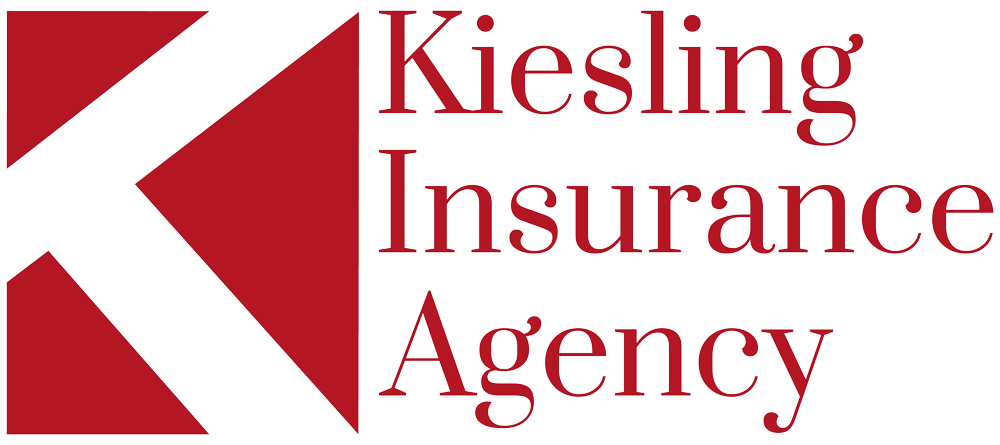
If you own a home in North or Central Texas, you already know the weather here doesn’t play around. One day it’s sunny skies, the next it’s hail the size of golf balls or winds strong enough to take down fences. Whether you’re in Dallas-Fort Worth, Waco, Austin, or one of the many towns in between, having the right home insurance is a must.
Here’s a straightforward guide to help you understand what you need—and what you might be missing.
Why Home Insurance Is So Important Around Here
Let’s be real—Texas weather is wild. In this part of the state, we deal with:
- Hailstorms (a big one in the DFW area)
- Severe thunderstorms with wind, rain, and sometimes tornadoes
- Flash floods, especially during spring
- Dry spells and wildfires, especially out in Central Texas
Even if you’ve never filed a claim, just one bad storm can do serious damage. That’s why insurance isn’t just nice to have—it’s essential.
What Your Policy Usually Covers
Most standard home insurance policies include:
- Dwelling coverage – to repair or rebuild your home after a covered event (like a fire or hailstorm)
- Other structures – things like fences, sheds, and detached garages
- Personal belongings – furniture, clothes, electronics, etc.
- Liability coverage – if someone gets hurt on your property
- Loss of use – helps pay for living expenses if you can’t stay in your home due to damage
What’s Not Included (But You Should Think About)
Here’s where people get caught off guard:
- Flood damage – not covered by standard policies. You’ll need a separate flood policy.
- Foundation issues – common in this area due to shifting soil, but not always covered unless it’s from a specific cause like a pipe leak.
- Water backup – damage from clogged drains or sump pumps isn’t usually included unless you add it.
- Wind/hail deductibles – in many policies, wind and hail claims come with a separate (and often higher) deductible.
Add-Ons Worth Considering in North & Central Texas
Depending on where you live and your home’s setup, you might want to add:
- Flood insurance – especially if you’re in a flood-prone area (FEMA maps can help).
- Equipment breakdown – covers appliances and systems like HVAC, which can be a lifesaver in the summer.
- Extended replacement cost – helps cover rebuilding costs if construction prices skyrocket after a big disaster.
- Roof upgrade coverage – can save you money if you ever need to replace it due to storm damage.
What Does It Cost?
Insurance costs here can be higher than the national average—thanks mostly to hail and storm risks. But it really depends on things like:
- Your location (urban vs. rural, flood zone, etc.)
- The age and condition of your home
- Roof type and upgrades
- Credit and claims history
Heads-up: Homes with newer or hail-resistant roofs usually get better rates. And bundling your home and auto insurance can help lower your premium.
Quick Tips Before You Buy or Renew
- Review your roof – it’s one of the biggest factors in your coverage and pricing.
- Know your deductibles – especially for wind and hail. Ask your agent to explain the difference.
- Don’t underinsure – make sure your coverage would actually rebuild your home, not just cover the market value.
- Check your personal property limits – and update it if you’ve added new electronics, furniture, or valuables.
Final Thoughts
Home insurance might not be the most exciting part of owning a home in Texas—but it’s one of the most important. A little time spent reviewing your coverage now can save you from some serious stress (and costs) later.
If you’re not sure whether your policy is up to date or covers everything you need, give us a call at (469) 447-5500. We know what kind of risks are common in your area and can help you fill in the gaps.

Driving in Texas means having the right auto insurance to stay protected on the road. Whether you’re a new driver or thinking about switching policies, knowing the basics of Texas auto insurance can help you make the best choice.
Texas Auto Insurance Requirements
Texas law requires drivers to carry a minimum level of liability insurance, often called 30/60/25 coverage:
- $30,000 for injuries per person
- $60,000 for total injuries per accident
- $25,000 for property damage per accident
This covers damages or injuries you cause to others but doesn’t pay for your own car repairs or medical bills.
Types of Auto Insurance Coverage
To better protect yourself, consider additional coverage options:
- Collision Coverage – Covers damage to your car from an accident, regardless of fault.
- Comprehensive Coverage – Protects against theft, vandalism, and weather damage.
- Uninsured/Underinsured Motorist Coverage – Helps if you’re hit by someone with little or no insurance.
- Personal Injury Protection (PIP) – Pays for medical bills and lost wages after an accident.
- Medical Payments (MedPay) – Similar to PIP but with more limited coverage.
- Gap Insurance – Covers the difference if you owe more on your car loan than the car’s actual value.
What Affects Your Auto Insurance Rate?
Several factors impact your auto insurance costs, including:
- Driving Record – Fewer accidents and violations mean lower rates.
- Age and Gender – Younger drivers usually pay more.
- Location – Cities like Houston and Dallas tend to have higher rates due to traffic and accidents.
- Credit Score – A higher credit score often leads to lower premiums.
- Vehicle Type – Luxury or high-performance cars cost more to insure.
Ways to Save on Auto Insurance in Texas
Looking for lower rates? Here are some tips:
- Compare Quotes – Get multiple quotes to find the best deal.
- Bundle Policies – Combining auto and home insurance can save money.
- Raise Your Deductible – A higher deductible means a lower premium, but you’ll pay more out of pocket in case of a claim.
- Take a Defensive Driving Course – Some insurers offer discounts for completing an approved course.
- Improve Your Credit Score – Better credit can help you secure lower rates.
- Look for Discounts – Ask about discounts for good driving, low mileage, or being a student with good grades.
Final Thoughts
Auto insurance in Texas isn’t just a legal requirement, it’s a smart way to protect yourself financially. Understanding coverage options and shopping around can help you find the best policy for your needs.
If you’re searching for affordable auto insurance, start by comparing quotes and checking for discounts. Safe driving and staying informed can help you get the best deal while keeping you protected on the road.
Have questions? Give us a call at (469) 447-5500.

Central Texas is a region known for its vibrant economy, bustling businesses, and entrepreneurial spirit. From the tech hub in Austin to the agricultural enterprises in rural towns, businesses of all sizes thrive here. However, amidst this prosperity, the importance of commercial insurance cannot be overstated. Whether you’re a startup, a small business, or a large corporation, having the right insurance coverage is crucial for protecting your assets, employees, and operations. This blog explores why commercial insurance is essential in Central Texas and what businesses should consider when choosing their coverage.
Understanding Commercial Insurance
Commercial insurance is a broad category that encompasses various types of coverage designed to protect businesses against financial losses. These losses can arise from property damage, liability claims, employee injuries, or other unforeseen events. The primary goal of commercial insurance is to provide financial support and peace of mind, allowing businesses to focus on their core activities without worrying about potential risks.
Types of Commercial Insurance Coverage
- General Liability Insurance: This foundational coverage protects businesses from claims of bodily injury or property damage caused to third parties (such as customers or clients) due to your business operations.
- Property Insurance: This covers physical assets such as buildings, equipment, inventory, and furniture from risks like fire, theft, vandalism, or natural disasters.
- Workers’ Compensation Insurance: Required by law in Texas for most businesses, workers’ compensation provides medical benefits and wage replacement to employees who are injured or become ill due to their work.
- Commercial Auto Insurance: If your business uses vehicles for operations, commercial auto insurance covers damages and liabilities related to those vehicles.
- Professional Liability Insurance: Also known as errors and omissions insurance, this protects businesses that provide professional services from claims of negligence or inadequate work.
- Cyber Liability Insurance: In an increasingly digital world, this coverage protects against data breaches, cyber-attacks, and other cyber risks that can compromise sensitive information.
Why Commercial Insurance Matters in Central Texas
Protecting Against Natural Disasters
Central Texas is prone to severe weather events such as hurricanes, tornadoes, and floods. Businesses in this region need insurance that covers property damage and business interruption caused by these natural disasters. Without adequate coverage, a single catastrophic event could lead to financial ruin for a business.
Safeguarding Against Liability Claims
In a litigious society, businesses face the risk of lawsuits from customers, clients, or even employees. General liability insurance provides coverage for legal expenses, settlements, or judgments arising from bodily injury, property damage, or advertising injury claims.
Supporting Business Continuity
For many businesses, especially small and medium-sized enterprises (SMEs), the survival of a significant loss event can be challenging. Commercial insurance helps mitigate financial losses, enabling businesses to recover and continue operations after an unforeseen incident.
Meeting Legal Requirements
Certain types of commercial insurance, such as workers’ compensation, are mandatory under Texas law for most businesses. Compliance with these regulations not only avoids legal penalties but also ensures that employees are adequately protected in case of work-related injuries or illnesses.
Factors to Consider When Choosing Commercial Insurance
Assessing Business Risks
Every business is unique, and so are its risks. Conducting a thorough risk assessment helps identify potential hazards and vulnerabilities that require insurance coverage. Factors such as industry type, location, size, and operational scope play crucial roles in determining the appropriate coverage.
Customizing Coverage Needs
While standard insurance policies provide basic coverage, businesses often require customized policies to address specific risks. Working with an experienced insurance agent or broker who understands the local market and industry-specific risks can help tailor a comprehensive insurance portfolio.
Evaluating Insurance Providers
Not all insurance providers are alike. When selecting an insurance company, consider factors such as financial stability, customer service reputation, claims handling process, and coverage options. Reading reviews and seeking recommendations from other business owners can provide valuable insights into an insurer’s reliability.
Reviewing Policy Terms and Conditions
Before purchasing commercial insurance, carefully review the terms, conditions, exclusions, and limitations of the policy. Pay attention to coverage limits, deductibles, and any additional endorsements or riders that may be necessary to fully protect your business interests.
Budgeting for Premium Costs
Insurance premiums vary based on factors such as coverage limits, deductible amounts, and risk exposure. While cost is an important consideration, prioritizing adequate coverage over price alone ensures that your business is adequately protected against potential risks.
Conclusion
In conclusion, commercial insurance is not just a legal requirement but a strategic investment for businesses in Central Texas. From protecting against natural disasters and liability claims to ensuring business continuity and compliance with regulations, the benefits of having comprehensive insurance coverage are manifold. By understanding their risks, customizing coverage needs, and selecting reputable insurance providers, businesses can safeguard their assets, employees, and long-term success. In a dynamic and competitive business environment like Central Texas, commercial insurance remains a cornerstone of responsible business management and risk mitigation.
Need an Insurance Agency in Aubrey, TX?
Our team here at Kiesling Insurance Agency understands that the insurance process can be overwhelming. Making sure you are adequately covered is one of the most important things you can do for yourself and your family. As your trusted advisor, our mission is to make sure that the things that are most important to you are covered: your family, home, cars, toys, and business. We have a team of licensed professionals ready and available to help with your insurance program. Our goal is to help you understand your coverages and to tailor a program to meet your specific needs and protect your family. Give us a call today!

For Texas residents, protecting their homes and belongings is paramount, especially in a state prone to natural disasters such as hurricanes, floods, and wildfires. Home insurance provides essential financial protection against unforeseen events that can damage or destroy property, offering peace of mind and security for homeowners. In this article, we’ll explore everything home insurance in Texas residents need to know to ensure they have the right coverage in place.
Understanding the Basics of Home Insurance
Home insurance, also known as homeowners insurance, is a type of property insurance that provides coverage for losses and damages to a person’s residence and its contents. A typical home insurance policy includes coverage for the dwelling itself, personal property, liability protection, and additional living expenses in the event of temporary displacement due to covered perils. Home insurance policies can vary in terms of coverage limits, deductibles, and exclusions, so it’s essential for Texas residents to understand the specifics of their policy and any optional coverages available.
Coverage Options and Policy Types
In Texas, homeowners have several options when it comes to home insurance coverage and policy types. Standard home insurance policies typically offer coverage for the structure of the home, personal belongings, liability protection, and additional living expenses. However, homeowners may also have the option to add endorsements or riders for specific perils or items not covered by the standard policy, such as flood insurance, windstorm insurance, or coverage for high-value items like jewelry or artwork. Understanding the available coverage options and policy types is crucial for Texas residents to ensure they have adequate protection against potential risks and losses.
Factors Affecting Home Insurance Premiums
Several factors can influence the cost of home insurance premiums for Texas residents. These include the location and value of the home, the age and condition of the property, the homeowner’s claims history and credit score, and the chosen coverage limits and deductibles. Additionally, factors such as the proximity to coastal areas, flood zones, and wildfire-prone areas can also impact insurance premiums, as these areas may be at higher risk for certain perils. By understanding the factors that affect home insurance premiums, Texas residents can make informed decisions when selecting coverage and managing their insurance costs.
Special Considerations for Texas Residents
Texas residents face unique challenges when it comes to home insurance, particularly in regions prone to severe weather and natural disasters. Coastal areas may require additional coverage for windstorm and flood insurance, while inland areas may face risks such as wildfires or tornadoes. It’s essential for Texas residents to assess their specific risks and vulnerabilities and ensure they have the appropriate coverage in place to protect their homes and belongings. Working with an experienced insurance agent who understands the local market and can help tailor coverage to individual needs is crucial for Texas residents seeking comprehensive protection against potential hazards.
Tips for Finding the Right Home Insurance Policy
When shopping for home insurance in Texas, there are several tips that residents can keep in mind to find the right policy for their needs. First, it’s essential to compare quotes from multiple insurance carriers to ensure you’re getting the best coverage at the most competitive price. Additionally, be sure to review the coverage limits, deductibles, and exclusions of each policy carefully to understand what is and isn’t covered. Finally, consider bundling your home insurance with other policies such as auto or umbrella insurance to qualify for discounts and streamline your coverage needs.
Protecting Your Home and Belongings with Home Insurance
Home insurance is a crucial safeguard for Texas residents looking to protect their homes and belongings against unexpected losses and damages. By understanding the basics of home insurance coverage, exploring available options and policy types, considering factors affecting premiums, and working with an experienced insurance agent, Texas residents can ensure they have the right coverage in place to safeguard their most valuable assets. With the right home insurance policy, Texas residents can have peace of mind knowing that their homes are protected against the uncertainties of life.
Need an Insurance Agency in Aubrey, TX?
We know how crucial it is to have peace of mind knowing your home is fully protected, especially here in Texas where natural disasters are a real concern. That’s why here at Kiesling Insurance Agency, we’re dedicated to helping you find the perfect home insurance policy tailored to your unique needs. Whether you need coverage for flood, windstorm, or any high-value belongings, we’re here to guide you through the process with expertise and care. Don’t leave your most valuable assets unprotected—reach out to us today and let us help you secure the best coverage for your home.






